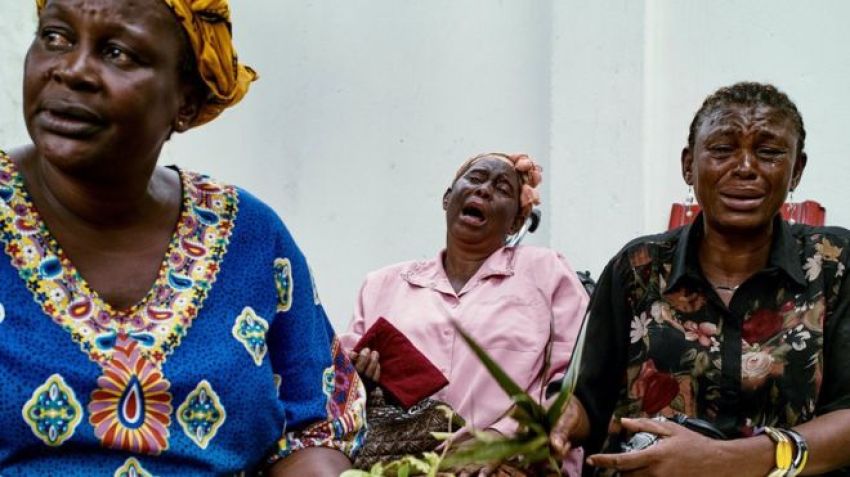Toddlers Mutilated, Pregnant Women Stabbed as Over 3,000 Are Killed in DR Congo, Church Leaders Say

The Roman Catholic Church has reported that as many as 3,383 people have been slaughtered in the ongoing violence in the Democratic Republic of Congo since October, with disturbing reports emerging of soldiers burning and mutilating toddlers, and stabbing pregnant women.
Reuters reported on Tuesday that Church officials cited their own sources on the bloodshed in the central Kasai region, stemming from the conflict between anti-government militia and the government's army.
The United Nations and other human rights groups have said that both sides have been committing atrocities, with the Church noting that the army destroyed 10 villages in its attempts to put down the insurrection.
The anti-government militia, on the other hand, has killed hundreds of people, destroyed four villages and attacked church property.
Zeid Ra'ad al Hussein, the U.N. High Commissioner for Human Rights, said that children and women have suffered greatly in the chaos.
"Refugees from multiple villages in the Kamonya territory indicated that the Bana Mura have in the past two months shot dead, hacked or burned to death and mutilated hundreds of villagers, as well as destroying entire villages," Zeid said in a statement at the U.N. Human Rights Council in Geneva.
He added that U.N. investigators have seen children a young as 2-years-old whose limbs had been chopped off and babies had machete wounds and severe burns.
"One 2-month-old baby seen by my team had been hit by two bullets four hours after birth; the mother was also wounded. At least two pregnant women were sliced open and their fetuses mutilated," he added.
Zeid further called on an international investigation, describing Congolese efforts as "clearly insufficient in view of the massive scale and horrific nature of the crimes that have taken place and, sadly, continue."
DR Congo's Human Rights Minister Marie Ange Mushobekwa pushed back at Zeid's report, insisting that the government had nothing to hide.
"Some countries ... should not try to use the Human Rights Council — such a respectable institution — to settle scores with states whose leaders they don't like," Mushobekwa asserted.
She also claimed that enough evidence has not been provided for the reports of mass graves.
"The sad truth is that they are looking for mass graves everywhere except where they may actually exist," she told the council.
As Newsweek reported on Tuesday, the crisis in DR Congo remains one of the least reported ones in the world. It flared up in mid–2016 when tribal chieftain Kamwina Nsapu in Kasai called for an insurgency after the government refused to recognize his authority in the province.
Nsapu was killed in an August 2016 security forces raid, which prompted his followers to start a campaign to avenge his death, which has resulted in a war with the government.
"A woefully inadequate number of aid agencies" are on the ground and a "pitiful amount of money" has been pledged to address the deadly conflict, said Ulrika Blom, the Congo country director at the Norwegian Refugee Council.
While $65 million in emergency appeal was announced by the U.N.'s humanitarian office in April, only eight percent of funds, or $5.2 million, have so far been provided.
The Catholic Church, whose adherents account for close to 50 percent of the population, reported in February that churches have also been attacked, with buildings desecrated and Christian nuns terrorized.
Cardinal Monsengwo Pasinya of Kinshasa warned at the time that a "resurgence of fear, anger and insecurity" is spreading among the people, with the Church being "targeted deliberately" for its efforts to bring the country back from the brink of civil war.
"It is now down to the men of politics to acknowledge with humility, both before the nation and before the international community, their political weakness and the turpitude of their selfish choices that have led to a political impasse and the paralysis of the institutions," Pasinya pleaded with the country's politicians.



























